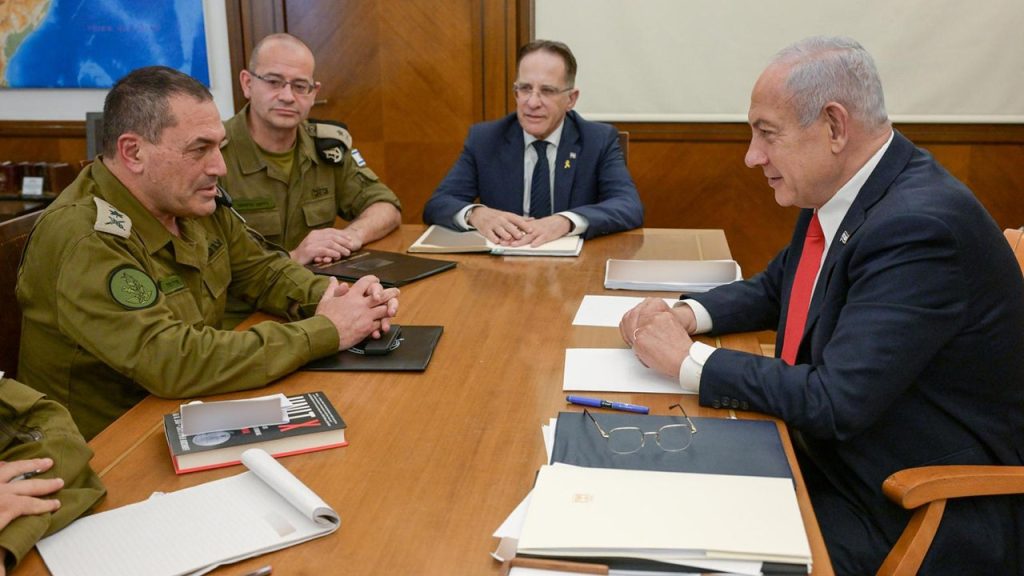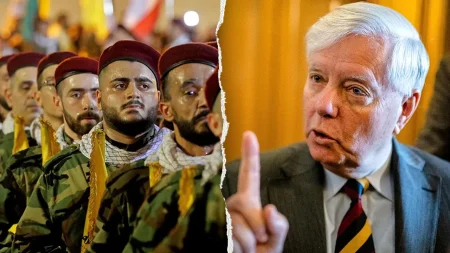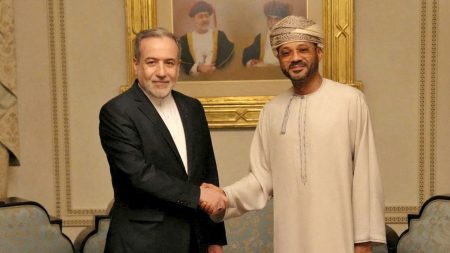Israel’s Military Chief Urges Diplomatic Path Over Gaza Takeover Amid Hostage Crisis
In a pivotal moment for Israel’s Gaza strategy, Lieutenant General Eyal Zamir, Israel’s top military commander, has taken a stance against a full military takeover of Gaza, instead advocating for the adoption of the Witkoff diplomatic framework. According to multiple senior sources, Zamir has repeatedly expressed to Israel’s cabinet that while the military stands ready for ground operations, the wisest course of action would be pursuing a negotiated solution to secure the release of the approximately 48 remaining hostages. This position has created notable tension within Israel’s leadership, as Prime Minister Benjamin Netanyahu continues to push for more aggressive military action. “The chief of staff is standing by his professional judgment, based on the experience of this war,” one former senior IDF official explained, noting that Zamir specifically warned that immediate military maneuvers could put hostages in greater danger.
The shadow of the Tel Sultan tragedy looms large over these deliberations. Earlier in 2024, during an Israeli operation in Rafah, Hamas executed six hostages, including American-Israeli Hersh Goldberg-Polin, as Israeli forces approached their location. This devastating incident has become a reference point in strategic discussions, highlighting the extreme risks of conducting large-scale ground operations before exhausting diplomatic channels. Military leaders view this as a painful lesson that should guide current decision-making, particularly as negotiations under the Witkoff framework show potential. According to sources familiar with the situation, military pressure has already brought Hamas back to considering the July 29 Witkoff proposal, which outlines a 60-day Israeli withdrawal in exchange for the release of 10 living hostages and 15 bodies, with Israel retaining the right to resume fighting if Hamas violates the agreement.
Netanyahu’s position stands in stark contrast to his military advisors. The Prime Minister has repeatedly stated that Israel’s goal “is not to occupy Gaza” but rather to “free Gaza from Hamas terrorists,” insisting that seizing Gaza City is necessary because Hamas refuses to disarm. When asked about the apparent divide between political and military leadership, a spokesperson from the Prime Minister’s Office responded simply: “The Israeli cabinet decided to move forward with the operation plan presented by the chief of staff himself.” This terse statement does little to address the reported disagreements within Israel’s security establishment over tactical timing and strategic objectives. Notably, sources confirmed to Fox News Digital that both the IDF chief of staff and the Mossad director opposed the timing of a recent strike against Hamas leadership in Doha, suggesting it may have been deliberately scheduled to complicate ongoing negotiations.
The timing of military operations has become a particularly contentious issue. A recent Politico report cited a source “close to the president’s national security team” who suggested the Tuesday strike in Doha may have been an intentional move to hinder negotiations, noting: “Every time they’re making progress, it seems like he [Netanyahu] bombs someone.” One Israeli official elaborated on this concern, stating: “The plan was long in the works, but there was no reason to choose this specific timing instead of waiting to get Hamas’s response in the negotiations,” adding that both this operation and the decision to continue the broader Gaza offensive “go against professional echelon advice.” This apparent disconnect between political decisions and military recommendations highlights the complex dynamics at play as Israel determines its path forward.
The professional military assessment, according to sources familiar with cabinet deliberations, continues to favor the diplomatic approach outlined in the Witkoff plan. A second source confirmed that Zamir reiterated his position both last Friday and again yesterday in Security Cabinet and Foreign Affairs and Defense subcommittee meetings. “He has made clear that the Witkoff plan is a good one,” the source explained, emphasizing that the framework allows Israel significant flexibility while creating a pathway for hostage release. This position reflects broader concerns within the military establishment about the long-term implications of a full takeover of Gaza, with the former senior official noting that “the chief of staff opposes military rule in Gaza and believes Israel should look ahead to the day after and draw a political solution accordingly.”
Meanwhile, the international community continues to weigh in on the crisis. Former President Donald Trump recently issued a stark warning to Hamas on his Truth Social platform, responding to reports that the group had moved hostages above ground as human shields against Israel’s ground offensive. “I hope the Leaders of Hamas know what they’re getting into if they do such a thing,” Trump wrote, calling it “a human atrocity, the likes of which few people have ever seen before,” and demanding: “RELEASE ALL HOSTAGES NOW!” This statement adds another layer to the complex geopolitical context in which Israel’s military and political leadership must navigate their next steps. As the debate continues within Israel’s highest levels of government, the fate of dozens of hostages and countless Palestinian civilians hangs in the balance, with profound implications for regional stability and the possibility of eventual peace.















